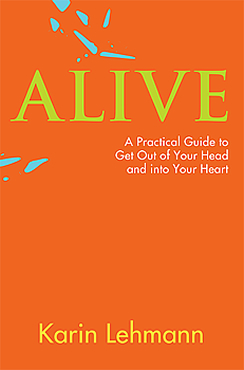The reality you experience is a mirror image of your expectations.” -Deepak Chopra
One of my very good friends shared a story from his life with me one day.
He told me about a time when nothing was working out for him. He had gone from job to job, getting more bitter and angry, blaming everything and everybody for his bad luck. Deep down, he had given up and did not expect anything but misery to come his way. He did not know how to turn things around.
It took a dramatic event, the passing of a close friend, to wake him up. At that point, he realized how fragile life was and how he was squandering it away. “I started to look inside’, he said. “And what I saw was not pretty. Here I was, whining and complaining when really I had no reason. It was then that I understood how my attitude was shaping every aspect of who I was.”
My friend slowly started to make changes and he learned to appreciate life with a new intensity. He developed a gratitude for what he had and took responsibility for what he wanted. “Today I have an amazing life and I am making things happen that I never thought I could!”
You don’t need a tragedy to turn your life around. What it takes is a heightened sense of awareness, a positive attitude, and the willingness to take responsibility for your actions. Many people have shared this in books, articles, and talks: Living a great life is not a secret. If you learn, practice, and master specific skills, you can have what you want, fulfill your deepest desires, and live a wonderful life.
What does it take? A good attitude for one thing and that’s what I want to share with you. Time and again, I have seen people miss out on the most amazing opportunities because they were unaware of the subtle messages they were unconsciously sending out.
How Do You Develop a Positive Attitude?
- Take an honest inventory. Before you can adjust your attitude you need to find out what it is. What is your overall ‘tone’ in life? Are you tired, disappointed, happy, excited, pressured, angry, or sad? Observe yourself as objectively as you can: How do you think about events, how do you think about people? Do you secretly judge others, are you overly critical, do you get jealous, do you lie? I know this can be hard, so remember, it’s just an exercise. If it helps you, start a journal and record your observations.
If you are courageous, ask others for feedback: How do they see you? How do you come across to them? Make sure to ask the people who can give you an objective answer. Somebody who holds a grudge against you is not a good candidate.
Another interesting activity is the so-called mirror exercise. Stand in front of a mirror and relax your face. Let go of all your social expressions and look at your face as objectively as you can. What do you see? What does your face communicate? Does it look happy, bright, or curious? Or is it tired, angry, or disappointed? What do you notice? Again, write down your observations.
- Accept yourself. After you did your inventory, take some time for reflection. Pick a peaceful environment where you are undisturbed and review what you have found out about yourself. Take a good look: What are your flaws, your weaknesses, your disappointments, your fears, your resentments, your unfulfilled desires, and your needs? Allow yourself to experience the depth of your sensations. Notice the emotions that are coming up, the thoughts, the judgments, the fears, the need for control. It’s all right. You are all right. Just observe, relax, and let go.
Take your time for this. If you feel you have to cry, cry, if you want to laugh, laugh. Accept your life for what it is. There is no right or wrong. There is nothing you have to do differently, there is nothing you have to do better. Everything is perfect the way it is. You are perfect the way you are.
There will be a point when all the pressure has come off and you feel completely relaxed and renewed. You are ready to move on.
- Practice positive behavior. After you did your inventory and let go of your pent up emotions, you can put your observations to practice. Observe yourself in action. Watch out for negative ways of thinking and communicating. For example, if you notice that you have an opinion about someone, catch yourself and find something you can acknowledge about that person. If you are getting upset with your child, take a moment to take a deep breath and relax. Find a positive way of communicating rather than getting angry.
Practicing positive behavior takes a lot of self discipline. Be patient with yourself and praise yourself often. Bad habits are sneaky and it takes constant vigilance and awareness to steer clear of them.
- Model after someone. Do you know someone who’s attitude towards life you admire? Model after them. At the beginning this can help you in adopting a new outlook on life and over time you will create your very own and unique way of interacting in the world.
- Practice. In his new book ‘Outliers’, Malcolm Gladwell writes that it takes 10,000 hours to become an expert at something. Take all the time you need and be patient with yourself. Maybe some days you are on top and things are going well and other days are harder. It’s perfectly normal. The only thing that will make a difference in the long run is for you to keep going.
There are many ways to develop a great attitude. Please let me know your insights, thoughts and experiences.
As always, thank you for reading,
Karin
***
Books:
“Think And Grow Rich” by Napoleon Hill
Do you know about other great books? Please send me your recommendations, I’d love to add them to my reading list.
***
Photo Credit: Death to the Stock Photo



awesome blog post and hits right at home. thanks for the inspiration.
What a great post! very easy to read but full of practical advice! I am will tweet about.
Thanks for the link love on your side. I am happy you like my blog!
Have a fab day!